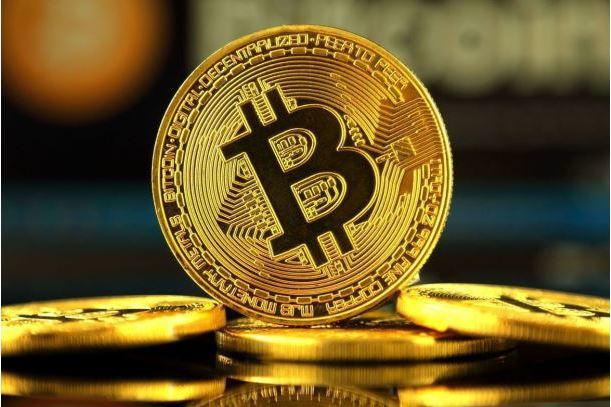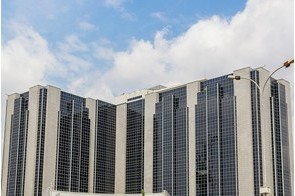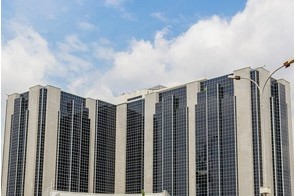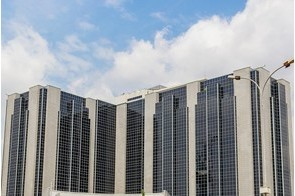Latest News
Nigeria ranks as world's second-largest bitcoin trader after the US

News Highlight
The growth in cryptocurrency adoption in Nigeria is taking place despite the lack of recognition of cryptocurrencies as a legitimate medium of exchange by the Central Bank of Nigeria.
The value of bitcoins traded in Nigeria over the last five years is more than any country in the world, except the United States. According to the latest data on trading activity on Paxful, a peer-to-peer bitcoin marketplace, as provided by Coin Dance – an online platform providing Bitcoin statistics and services – Nigeria traded bitcoins worth more than $566 million between 2015-2020.
The data also shows the number of bitcoins that Nigeria traded in the five-year period was 60,215. The country was surpassed only by the US where 535,660 bitcoins were traded between 2015-2020. The value of that volume of digital currency stood at $3.8 billion.
Bitcoin is the world's largest cryptocurrency by market capitalisation. The digital currency is notably built on the blockchain technology, known as a "distributed, decentralized, public ledger.” The price of one bitcoin as of 13:00 GMT on Thursday was at all-time high of over $23,000, having risen by 8.6 per cent from the previous daily record of more than $21,000 on Wednesday.
The latest data on bitcoin trading activity on Paxful was sent to Financial Nigeria on Thursday by London-based SEO and Outreach Agency, Verve Search. The data provides bitcoin trading activity for 28 countries. Apart from US and Nigeria, other top 10 ranked countries include China, Canada, United Kingdom, India, Australia, Kenya, Philippines and South Africa.
The volume of bitcoin trades in Nigeria was 10 times more than that of Kenya, the second-largest African bitcoin market, trading 5,895 bitcoins worth $55.3 million in the last five years. The third largest market on the continent is South Africa with 1,802 bitcoin trades valued at $18.9 million.
Bitcoin trading in Nigeria has increased by 102 per cent so far in 2020. While the year is not over and despite the COVID-19 pandemic, Nigeria has seen more bitcoin trading in 2020 than ever before, with 20,504.50 bitcoins traded as of November 14. The value of the bitcoin market in Nigeria thus far this year is $213.7 million.
The growth in cryptocurrency adoption in Nigeria is taking place despite the lack of recognition of cryptocurrencies as a legitimate medium of exchange by the Central Bank of Nigeria (CBN). The CBN has warned banks against using, holding or transacting in virtual currencies because they are largely untraceable and anonymous, making them susceptible to abuse by criminals.
Nigeria’s Securities and Exchange Commission (SEC) set up a committee last year to provide recommendations on developing a regulatory framework for blockchain and virtual financial assets for the Nigerian Capital Markets. The recommendations and framework are yet to be developed.
Nevertheless, more Nigerians are now using cryptocurrencies, especially bitcoin, to make transactions, invest and transfer funds.
“Paxful enabled Nigerians to make use of an asset class (gift cards), as a way to go around financial restrictions,” said Ray Yussef, CEO and co-founder of Paxful. “Now, bitcoin is flooding out of Nigeria and into other African countries because of the ambition of Nigerians' Bitcoin community and Paxful."
Brian McCabe, Head of Market Insights at Paxful explained that the COIVD-19-induced economic recession in Nigeria has made many people in the country to look for alternative investments such as cryptocurrency trading.
"If emerging (market) currencies continue to experience pressure, bitcoin could once again become the alternative if people are unable to preserve wealth in their own currency," said McCabe. "This use case of wealth preservation in one of Paxful's core use cases given how much of our users are in emerging markets."
Cryptocurrencies such as bitcoin can be bought or sold on exchange platforms using conventional money. Trading fees often apply for transactions. In countries where digital currencies are legal, they can be kept in a digital wallet and used to pay for actual goods and services from any person willing to accept them as payment.
Related News
Latest Blogs
- AML/CFT regulations and data protection require balance in regulating cryptocurrency
- It's time for honest discussions on Nigeria's security architecture
- Driving economic growth through green transition in Nigeria
- CBN is fighting inflation instead of stagflation
- Why electricity privatization failed (2)
Most Popular News
- IFC, partners back Indorama in Nigeria with $1.25 billion for fertiliser export
- CBN increases capital requirements of banks, gives 24 months for compliance
- CBN settles backlog of foreign exchange obligations
- Univercells signs MoU with FG on biopharmaceutical development in Nigeria
- Ali Pate to deliver keynote speech at NDFF 2024 Conference
- NDFF 2024 Conference to boost Nigeria’s blue and green economies






